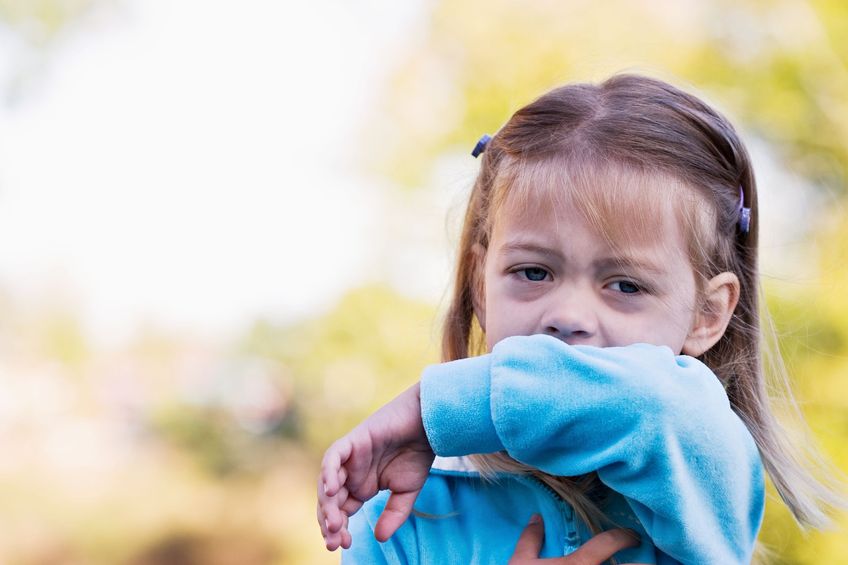If you're a frequent visitor to Healthify, why not share our site with a friend? Don't forget you can also browse Healthify without using your phone data.
Cough and cold medicines – children
Key points about cough and cold medicines for children
- Cough and cold medicines help lessen the symptoms of the common cold, such as runny nose and cough. They can't get rid of (cure) a cold, virus or cough.
- These medicines can cause serious side effects in young children.
- Find out how to use them safely and when to see your healthcare provider.

Coughs and colds are common in tamariki and most recover without needing much treatment. Read more about cough in children and sore throat in children.
Cough and cold medicines help reduce the symptoms of the common cold, such as runny nose and cough. They don't get rid of (cure) any infection. These medicines can cause serious side effects in young children.
In children under 6 years of age it’s recommended to NOT use:
- decongestant nasal sprays
- over-the-counter cough and cold preparations
If cough preparations are used for children aged over 6 years, follow the dose instructions carefully, don't give more than 1 medicine at a time and don't use for longer than 5 days.
Chest rubs and vapouriser fluids
Chest rubs and vapouriser fluids don’t have any proven benefit AND can be poisonous. The camphor and eucalyptus oil in chest rubs and vapouriser liquids are poisonous and can make children very sick if they swallow them. As little as 2 mL (less than half a teaspoon) of eucalyptus oil can cause significant poisoning in an infant. There have been reports of seizures in children who have swallowed products such as Vicks vapour rub.
Be safe and don't have chest rubs or vapouriser liquids in the house. Read more about vapour rubs and vapouriser fluids.
See your doctor if your child has the following symptoms
|
The information on this page is for cough and cold medicines for children. For information for adults, see our pages on cough medicines for adults and cold and flu medicines for adults.
Medsafe, a unit of Health New Zealand | Te Whatu Ora, has assessed the safety and effectiveness of cough and cold medicines in children. They have advised the following:
Children under 6 years of age
Decongestant nasal sprays: Medsafe recommends that parents and carers shouldn't use decongestant nasal sprays or drops that contain oxymetazoline and xylometazoline for children aged under the age of 6 years. Examples are Otrivin Junior®, Sudafed® and Vicks Sinex.
Cough and cold medicines: Medsafe recommends that parents and carers should not use over-the-counter cough and cold medicines for children aged under 6 years. This is because there's:
- no evidence that cough and cold medicines work in children
- a risk of serious side effects, such as abnormal heart rate, allergic reactions and reduced consciousness in children
- a greater risk of accidental overdose so cold and cough medicines may cause more harm than good in young children.
| Medicines containing the following ingredients should not be used in children under 6 years of age | |
|---|---|
|
bromhexine guaifenesin phenylephrine doxylamine ipecacuanha brompheniramine promethazine |
dextromethorphan chlorpheniramine triprolidine pholcodine diphenhydramine pseudoephedrine |
Note: this list includes dextromethorphan and pholcodine which are not available in Aotearoa New Zealand but may be in medicines bought overseas.
Children between 6 and 12 years of age
For children aged between 6 and 12 years, cough and cold medicines can be used, as there's less risk of serious side effects in older children.
The decongestants pseudoephedrine and phenylephrine are not suitable for children under 12 years of age. They can cause side effects such as a fast heart rate and poor sleep.
Paracetamol and ibuprofen are not classed as cough and cold medicines and can still be given to children.
| Treatment | Description |
| Paracetamol | Paracetamol is commonly known as Pamol®, Panadol®, Paracare® or Parapaed®.
|
| Saline (salt water) nasal spray or nasal drops | Saline can be helpful for clearing blocked noses by thinning the mucus so it's easier to blow or suction out.
|
| Honey | Honey can act to soothe the throat.
|
If your child has a cough or cold, encourage rest and give lots to drink. If your child has a sore throat, see your doctor or nurse in case they need antibiotics or a throat swab.
Help tamariki to stay healthy and fight off colds and other illnesses by:
- making sure your house is warm and dry
- keeping your home smokefree – breathing second-hand cigarette smoke increases the risk of asthma, chest infections, ear infections and many other health problems in children
- dressing them warmly
- feeding them nourishing food
- using good hygiene practices, eg, washing hands and covering their mouth and nose with a tissue during coughs and sneezes.
Use of cough and cold medicines in children – updated advice(external link) Medsafe, NZ
Cough in children(external link) KidsHealth, NZ
Colds in children(external link) KidsHealth, NZ
Coughs and colds in children(external link) Patient Info, UK
Resources
Danger signs – baby & child sickness(external link) HealthEd, NZ English(external link), te reo Māori(external link)
5 questions to ask about your medications(external link) Health Quality and Safety Commission, NZ English(external link), te reo Māori(external link)
References
- Cough preparations(external link) New Zealand Formulary for Children, NZ
- Reminder: using cough and cold medicines in children is inappropriate(external link) Medsafe, NZ, 2016
- Cough medicines – do they make a difference?(external link) BPAC, NZ, 2023
- Cold season – managing without antibiotics(external link) BPAC, NZ, 2018
Brochures

Medicines and side effects
Healthify He Puna Waiora, NZ, 2024

Health Quality and Safety Commission, NZ, 2019 English, te reo Māori
Credits: Sandra Ponen, Pharmacist, Healthify He Puna Waiora. Healthify is brought to you by Health Navigator Charitable Trust.
Reviewed by: Stephanie Yee, Pharmacist, Auckland
Last reviewed:
Page last updated:





